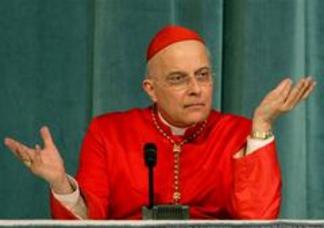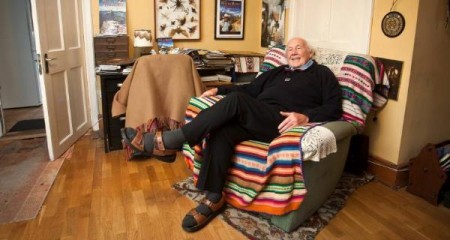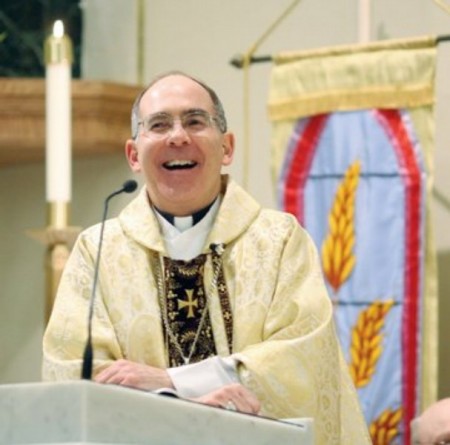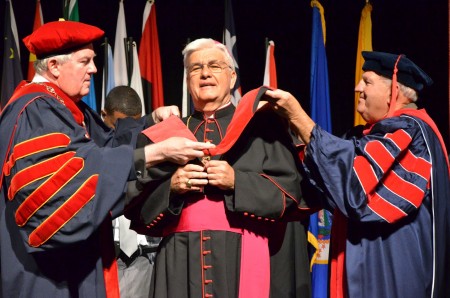By Mary Sanchez
The Catholic Diocese of Kansas City-St. Joseph showed itself as a forgiving, diligent shepherd in the civil trial just concluded.
But the sheltering love was for priests’ welfare first. Less attention was apparent for parishioners’ concerns, and certainly not for vulnerable children.
Given the testimony of denial by multiple priests, it’s questionable how far deeply ingrained attitudes have really shifted. In recent years, changes came about when the diocese was forced through repeated pleas by the faithful, multimillion-dollar settlements and court orders.
The trial’s conclusion was halted by a nearly $10 million settlement that lumped together multiple cases. But the jury trial was intended to weigh the sexual abuse accusations of a former altar boy, now a 44-year-old man.
Nearly two weeks of proceedings put on public display how the diocese for five decades — through four bishops — rationalized its decisions and struggles with pedophile priests.
The diocese put forth a shameful record in its own defense.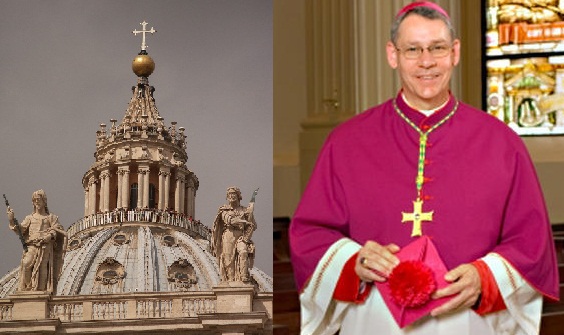
Letters and verbal complaints of specific troubling incidents, dating back to the mid-1970s, were initially dismissed. Sexually inappropriate advances were seen as raucous and drunken behavior, something that a priest could be chided for and then ushered back to the rectory. There seemed to be a belief, a misplaced hope, that treating a priest for alcoholism could also cure pedophilia, as if the criminal behavior was only contingent upon the drinking. For some bishops, there appeared to be confusion about the difference between homosexuality and the sexual abuse of children.
The church can choose to see the first as sinful. But to attack an innocent child is a crime. Such lack of common sense, that inability to separate church doctrine from criminal acts, is baffling.
In the 1980s, the diocese put its faith into what one expert testified was once common, moving a priest known to be struggling with sexual issues to a job as a hospital chaplain. One of the lawsuits settled this week was filed by a man who said he awoke from surgery to find a priest masturbating him.
Some of the deceased bishops’ actions can be understood better in the context of the times. Society in general is thankfully more informed about sexual abuse, how children are groomed to be victims.
But it’s a shallow defense.
Federal laws mandating that certain people must report suspected child abuse have been around since the mid-1970s. They always included clergy.
The priest in this case was still a priest when he died in 2013. He had been barred from performing some religious rites, but he was never formally defrocked. Monsignor Thomas O’Brien was treated as just another retired priest, his well-being taken care of as if he had served God and the diocese well in his time on Earth.
Before the settlement, O’Brien alone had already cost the diocese more than $7 million. And he’s just one priest who has been accused.
The question has always been, to what extent did the diocese shield its clergy at the cost of its flock? And why?
After this trial, we know more. But the jury was never going to hear the full story. Crucial information, broader context, was not allowed due to legal agreements between the parties to limit the case. Yet those elements draw a better picture of how the diocese mismanaged these problems, with one poor decision often leading to another.
Jurors were not told that one altar boy took his own life. They were not to know that O’Brien was believed to molest boys in tandem with another priest, Thomas Reardon, who has left the priesthood and has also been the subject of many lawsuits.
And they could hear no mention of former priest Shawn Ratigan.
Ratigan, sentenced last year to 50 years in prison for child pornography, is the link that makes the diocese’s past history so disturbing. Because the diocese used some of the same rationalizations initially for Ratigan’s behavior as they used in the 1970s and 1980s.
A long letter from a parish school principal detailed disturbing behavior by Ratigan toward children. The letter was not taken seriously by diocese officials. When disturbing pictures were found on Ratigan’s computer, he was simply shifted to another location and he abused again. Those decisions led to the misdemeanor charge of failure to report suspected abuse against the sitting bishop, Robert Finn.
It is only because of the Ratigan criminal trial that this civil proceeding came to be. Publicity about Ratigan’s case was the kick-start that brought these new allegations forward. So the past of the diocese is intricately linked to its more recent woes.
Certainly the addition of two non-clerical ombudsmen to handle allegations of abuse is significant. The two female workers have made prompt and appropriate reports. Most important, they’ve kept the diocese in compliance with the law when accusations have been raised the past three years.
Finn would not allow any non-monetary agreements to be tacked to this settlement. The diocese is still reeling from its breach of similar agreements to keep it on track, doing the right thing for parishioners. That lapse cost the diocese $1.1 million earlier this year.
These cases are not just about money. Lives have been ruined.
Among the most stoic in the courtroom were Don and Rosemary Teeman, with whom the diocese settled a lawsuit last year. Their son Brian committed suicide after serving as an altar boy at the same time as the plaintiff in this case.
These forever-grieving parents listened to detailed accounts suggesting the diocese knew this priest was a danger before he met their son. They believe Brian took his life after being molested by O’Brien.
No testimony changes their reality. The Teemans have two grandsons by their daughter. One boy bears a remarkable likeness to Brian.
But they do not have their son.
“They should have done something; it could have been stopped,” Rosemary Teeman commented midway through the trial. “I’d have a bigger family.”
Upon that truth is where the diocese should begin post-trial reflection.
Complete Article HERE!
